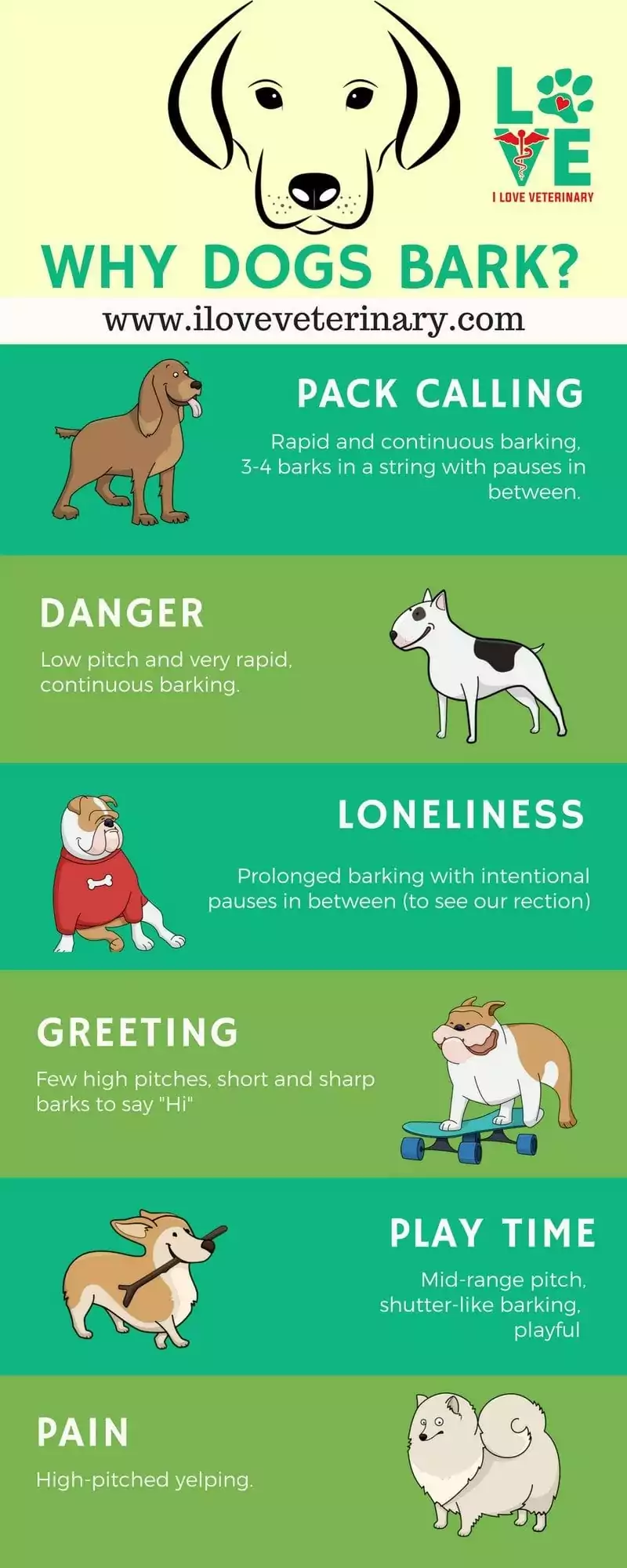Ever wonder why do dogs bark? All dogs love to bark, it’s their way of communicating with the world. In this article, we will explain the purpose of a dog’s bark and offer some tips on how to reduce barking. Read on to better understand why your dog barks in the first place!

Individuals who have decided they would like a pet often find themselves asking this question, but many people never get an answer because their dog has been with them for so long that its behavior is just assumed.
However, science has proven that there are some real reasons why dogs bark. We will start our discussion of barking by looking at the reason a dog barks in the first place.
Interpreting Dog Barking
The first thing to understand when it comes to dogs is that they sound what they see. If they hear a teeny tiny yip while out in the yard, they believe that what he hears is small.
If he hears a high-pitched scream while sitting on your front porch, he believes the creature outside is high-pitched. If you want to know why do dogs bark at other dogs, you must first understand that other dogs look different than man’s best friend.
The pitch with which the dogs are barking can mean many things, but usually high-pitched represents positive energy, and the opposite, low-pitched barking and growling can indicate aggression or anger.
The frequency of barking also tells a story. If the dog barks in quick bursts that means it’s excited about you or something, or that it wants to tell you something urgent. Slower barking usually means less interest.
A dog’s visual system is focused on both colors and size. Thus, the dog doesn’t see his canine friend as a bug, but he sees him as a huge bug. The next question then becomes: How does a dog perceive this huge bug?
The answer is simple: by barking! While we may speak of dogs “barking,” we really mean that they make sounds with their throats and noses and mouths and tongues and teeth.
However, there are two main reasons why dogs bark. These reasons are Fight and Fear. Let’s take a look at each of these.
Fear: This is normally what you think of when you think why do dogs bark. Dogs who are afraid will bark to scare away an intruder or to warn you that they see something that isn’t right.
What Should I Do if My Dog Barks Too Much?
Dogs can be such wonderful friends when they’re not barking. They give the joy of companionship, so it’s always nice to have one around. But if your pooch is just a barker and not a doofus, you might face some serious consequences in terms of your home and even your neighbors.
If you hear your dog barking incessantly, you should probably ask yourself what your dog is trying to tell you. It could be that he’s distressed, not only by the constant yapping but also by something else. It could be someone outside the house barking. Or maybe he’s reacting to some sort of commotion in the house or to any other disturbance outdoors (e.g., a car backfiring).
If you guess right, you should make the decision to let him continue barking, to teach him how to not bark, or to discipline him. But should you do any of these things? I’ll tell you: do not silence a dog that is simply barking for attention (i.e., he doesn’t sound like he wants to stop). If you do, the only thing that will teach your dog that he can get attention by barking will be that he can bark and get attention.
Instead, consider dog training specifically aimed at excessive barking.
Here, you can see some of the situations in which dogs bark and what their barking imply.

